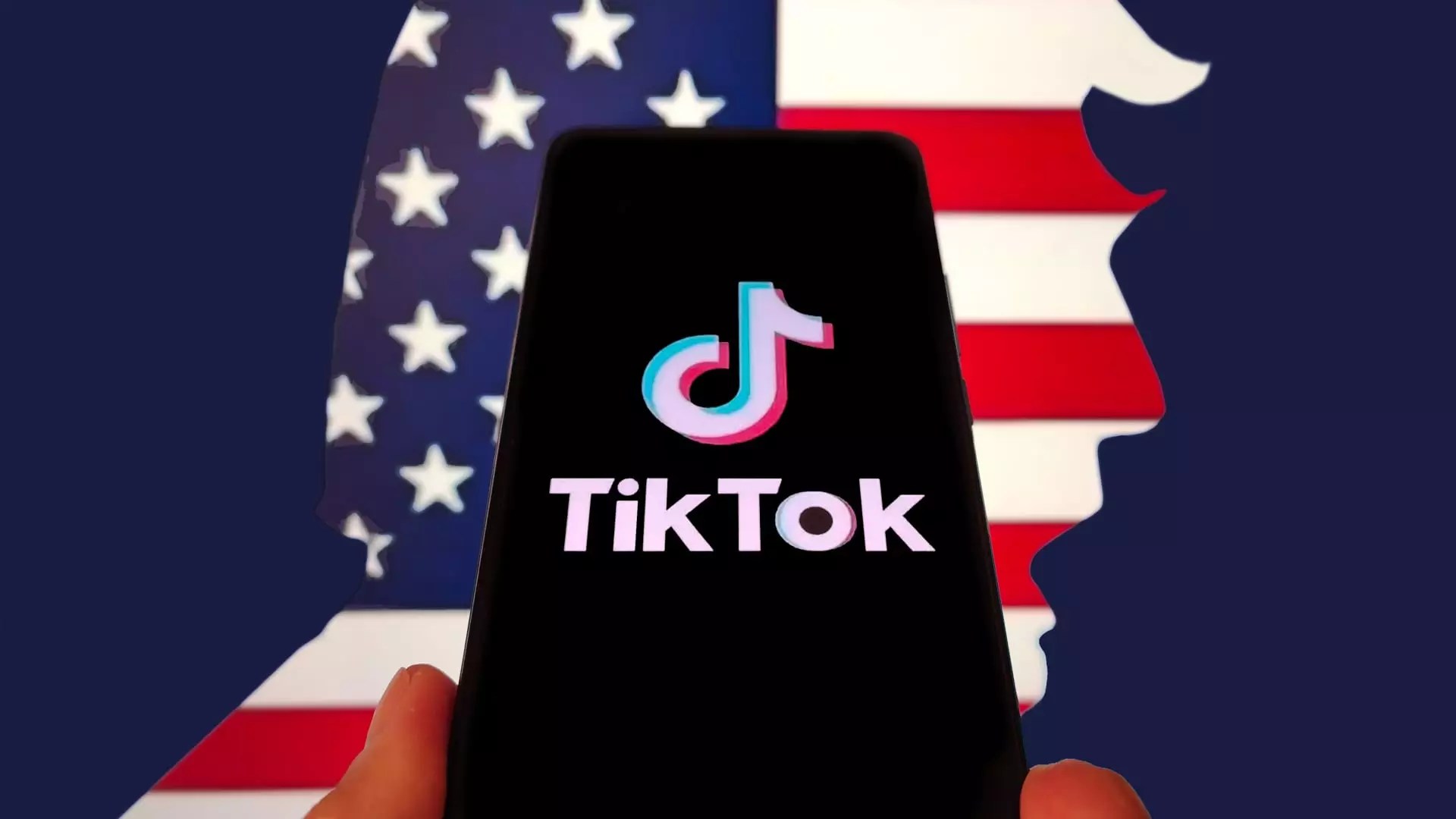In recent weeks, the announcement of a purportedly groundbreaking deal between the United States and China over TikTok has captured attention, but beneath the surface lies a troubling reality. While officials trumpet the arrangement as a win for America—highlighting American ownership and control over algorithms—these claims ring increasingly hollow upon closer analysis. The narrative spun by government representatives, especially those from the White House, appears crafted to placate public fears and rally political support rather than deliver concrete safeguards. A critical lens reveals that at its core, this deal could merely be a façade masking deeper issues rather than resolving them.
The statement that six out of seven board members will be Americans and that the algorithm remains under U.S. control sounds reassuring—yet, how meaningful is this when governing structures are often laden with influence from major corporate and political interests? The prominence given to Oracle, a well-connected tech giant, as the custodian of user data and privacy, raises further questions. Does entrusting sensitive data and critical platform functions to a single corporation truly safeguard user interests, or does it simply shift the locus of control without fundamentally addressing underlying sovereignty issues? The emphasis on “America first” feels less like a genuine reassertion of sovereignty and more a strategic move to maintain a presence in the digital space while placating domestic critics.
However, the most disconcerting aspect is the absence of transparency about who will sit on the board and how the platform’s algorithm will be managed. Promises of American control are often hollow when the details remain shrouded in secrecy. Without clear disclosure of the board members’ identities or decisive mechanisms to curb Chinese influence, the deal risks becoming just a symbolic victory rather than an effective safeguard. It demonstrates a troubling tendency of political narratives to oversell superficial wins while avoiding the nuanced solutions that real national security and privacy protections would require.
Is the Deal a Genuine Shift or a Political Smokescreen?
The broader political context reveals that this deal may be more about optics than substance. President Trump’s comments, emphasizing the “famous people” on the board and the “very powerful Americans” controlling the platform, seem designed to project strength. Yet, this language conveniently sidesteps the complex and often opaque realities of corporate governance and international pressure. The fact that there is still no concrete detail about who occupies these coveted seats hints at a possible lack of substance behind the rhetoric.
Moreover, the history of U.S. efforts to control TikTok points to a pattern of intermittent optimism and half-measures. The previous threat of a ban, the legal battles, and executive orders all underscore a persistent struggle to curb Chinese influence—yet what has truly changed? This latest agreement appears to be a compromise, a reluctant acceptance of the platform’s importance to young Americans, rather than a resolute stance defending data sovereignty and national security. It’s a recognition that altogether banning or outright controlling such a pervasive app is unfeasible in a modern digital economy, so instead, the focus is covertly shifted towards manageable concessions.
The political messaging also reveals something more disconcerting: the degree to which popular platforms are weaponized as symbols. Trump’s boast about TikTok’s role in his electoral success illustrates how social media largely functions as a tool for political capital, often detached from the genuine issues of data privacy and influence. The narrative of “bringing control back to America” becomes a political gambit, disguising the fact that what is ultimately being handed over is a complex web of influence, control, and compromise—wrapped in patriotic rhetoric.
The Hidden Costs of Compromise in Tech Sovereignty
Fundamentally, this deal exposes the peril of accepting superficial sovereignty over digital platforms in the name of political expediency. True control over TikTok’s algorithms and the data it harvests involves more than appointing a few American board members or transferring data to Oracle. It demands a robust, transparent framework that ensures platform integrity, holds corporations accountable, and maintains an independent oversight mechanism free from undue influence.
What this deal reveals is a capitulation to the reality that American technological dominance is increasingly intertwined with corporate power and international diplomacy. Instead of rigorous, enforceable protections, we see a framework that appears more as a political olive branch—designed to keep the platform alive in the U.S. market—than a genuine defense of user rights or national security.
Furthermore, the deal risks setting a dangerous precedent: one where national security concerns are managed through cosmetic arrangements rather than systemic reforms. It implicitly endorses a model where Chinese influence is mitigated by corporate gatekeepers rather than tackled through comprehensive policy reform grounded in democratic accountability. Such a model is inherently flawed because it allows key vulnerabilities—like data leaks or algorithm manipulation—to persist beneath layers of corporate controlled veneer.
In a broader sense, this highlights a societal failure to confront the real issues of digital sovereignty. Instead of focusing on establishing independent, transparent institutions to oversee critical technologies, policymakers seem content with band-aid solutions that satisfy political narratives. This trend not only leaves critical vulnerabilities unaddressed but also fosters complacency—an uneasy acceptance that superficial controls are enough when in fact, they are not.
What emerges from this analysis is a sobering realization: the current approach to managing global social media platforms like TikTok exemplifies a broader malaise in our political and economic systems—one that favors spectacle over substance, symbolism over security. The “deal” may give the illusion of control. Still, beneath that veneer lurks the intractable truth that genuine sovereignty requires more profound changes—fundamental reforms that prioritize user rights, corporate accountability, and national security over fleeting political gains.

